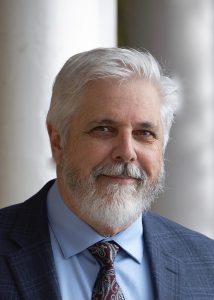Click here for a printer friendly PDF of this newsletter.
A self-sustaining agri extension service: success in Rwanda
Implementation of a self-sustaining agricultural extension system in Rwanda has had “strong impact on agricultural development through motivation and increasing trainings of farmer promoters.” That was the conclusion of research reported in the Journal of Agricultural Extension and Rural Development. A research team used project reports, interviews, and focus groups to assess the effectiveness of Farmer Field Schools and Farmer Promoters as Rwanda implemented a self-sustaining extension system. This decentralized, pluralistic approach involved many actors from the public and private sector playing different roles through agriculture committees at community, sector, district, province, and national levels.
You can read the article by open access here.
Organic sizzling during COVID-19
Sales of organic produce in the U.S. last year accounted for nearly $8 billion, “a whopping 15% increase over 2019.” That report came recently from Tom Karst, editor of The Packer trade periodical. It was based on data gathered for the 2021 Organic Produce Market Guide.
“…one of the most striking observations about the pandemic year was the surprisingly strong performance of organic produce. … Organic produce sales benefited from more people staying home to cook and taking an interest in their health and the world around them.”
You can read details in the full edition here.
Proclamation honors Orion Samuelson
We have added to the ACDC collection a December 2020 proclamation from the Secretary of the U. S. Department of Agriculture to retiring farm broadcaster Orion Samuelson. The proclamation honors and celebrates his journalistic integrity, persistence, and support of American farmers during a remarkable career of nearly 70 years, including 60 years of agricultural broadcasting at WGN, Chicago, Illinois.
You can read the full proclamation here.
“Sunshine” law needed for food, environmental, other sciences?
Recently we added to the ACDC collection a commentary about that question. Journalist Paul Thacker proposed a “sunshine law that would expose all sorts of conflicts of interest and industry manipulation that skew research on food, synthetic chemicals, pesticides, genetic technology, and the climate.” Working in the U.S. Senate a decade ago, he had helped draft and pass the Physician Payments Sunshine Act. “The law requires companies to report monies and gifts they give physicians, which are known to influence what doctors prescribe or promote. Thanks to the Sunshine Act, you can look up doctors on a public database to see who is paying them and how much. Several other countries have passed or are considering similar laws.”
You can read this three-page piece from “Radio Free” here.
“Consumer perspectives on vitamins, minerals and food and beverage fortification”
That title introduces a new 29-page research report we have added to ACDC from the International Food Information Council. Findings were based on interviews with 1,023 U.S. adults during early March. Among the findings:
- Foods (56%) and dietary supplements (49%) were the most commonly sought-out sources of vitamins and minerals.
- Of those who seek out specific vitamins and/or minerals, the Nutrition Facts label (46%) and front-of-package label (41%) were top sources of information.
- General health/wellness and immune health were top reasons respondents said they sought out specific vitamins and/or minerals.
- Most people have heard the term “fortification,” but only one in four reported knowing at least a fair amount about it.
You can read the full report here.
Communicator events approaching
Uncertainties of the COVID-19 health issue continue to prompt flexible event planning. Here are plans of which we are aware, with contact information you can use for details.
July 20-22, 2021
“Breaking New Ground.” 2021 Agri-Marketing Conference in Kansas City, Missouri.
Information: https://nama.org/agri-marketing-conference.html
September 23-25
“Risky business.” National conference of the Canadian Farm Writers Federation in Windsor, Ontario.
DocNews21-07Information: https://cfwf.ca/
October 4-6, 2021
Fall Conference, National Agri-Marketing Association (NAMA) in St. Louis, Missouri.
Information: https://www.nama.org/fall-conference.html
November 17-19, 2021
“A Trusted Friend to Agriculture.” Convention of the National Association of Farm Broadcasting (NAFB) in Kansas City, Missouri.
Information: https://nafb.com
Best way to give advice
We close this issue of ACDC News with special thanks to ACDC Associate Paul Hixson. He recently shared an interesting list of folk wisdom and humor. It features 28 pieces of “Old Farmer’s Advice.”
Here’s a challenging thought for July about communicating effectively:
“Words that soak into your ears are whispered…not yelled.”
Offering information, regards and wishes
ACDC is a resource for you, so please feel free to invite our help as you search for information. Don’t forget to follow us on Twitter @ACDCUIUC. And please suggest (or send) agricultural communications documents we might add to this unique and valued international collection. We welcome them in hard copy (sent to Ag Comm Documentation Center, Room 510, 1101 S. Goodwin Avenue, University of Illinois, Urbana, IL 61801) – or in electronic format sent to acdc@library.illinois.edu


